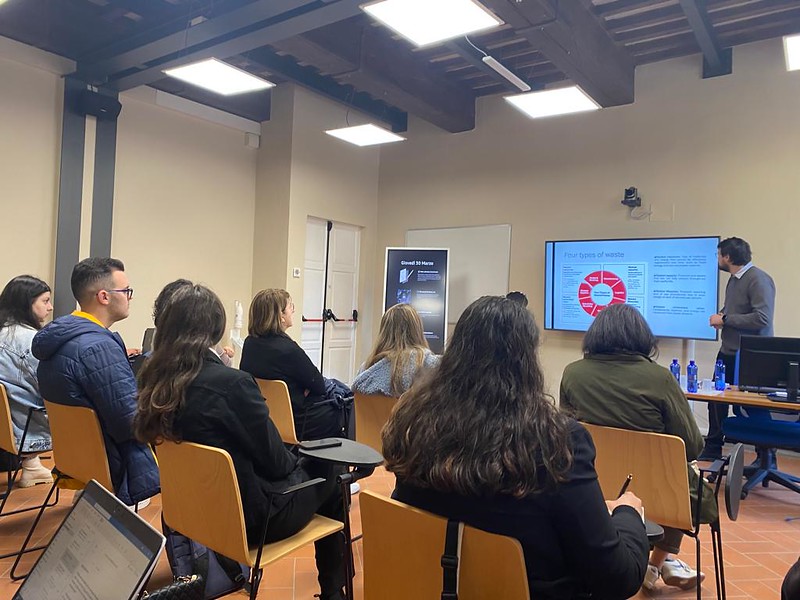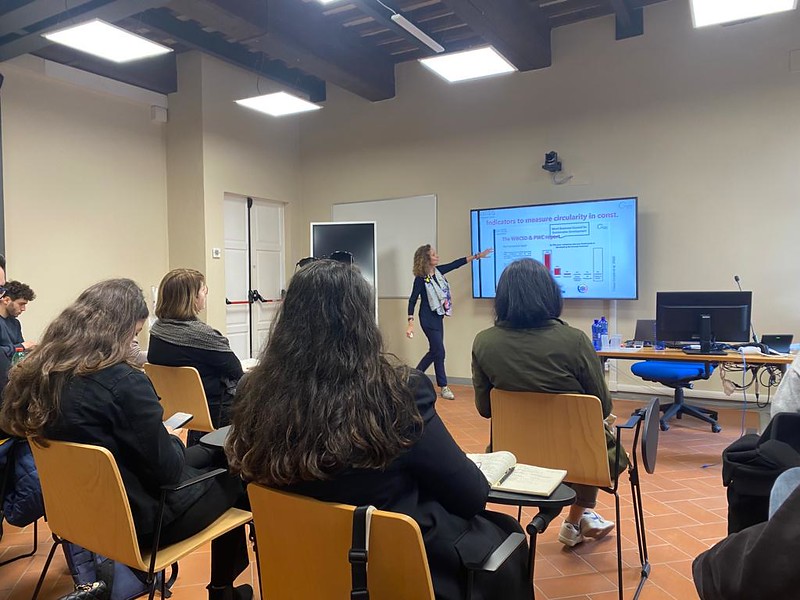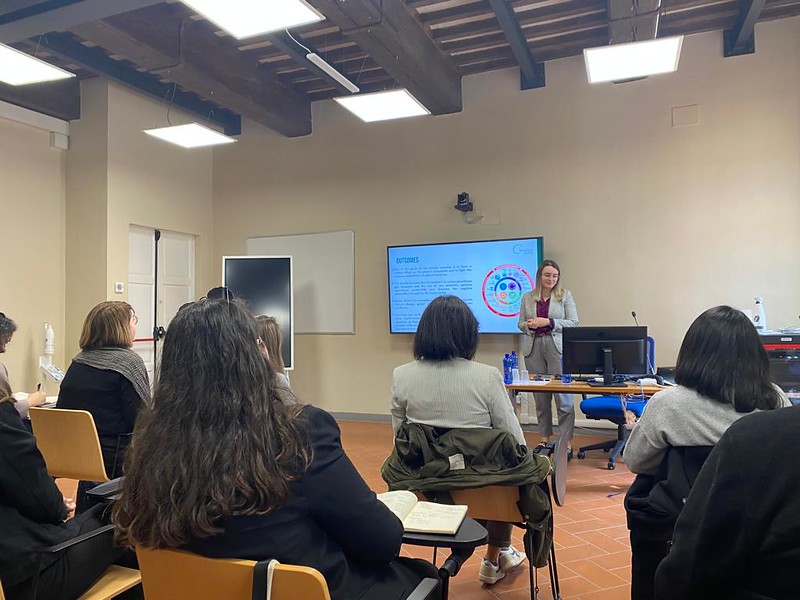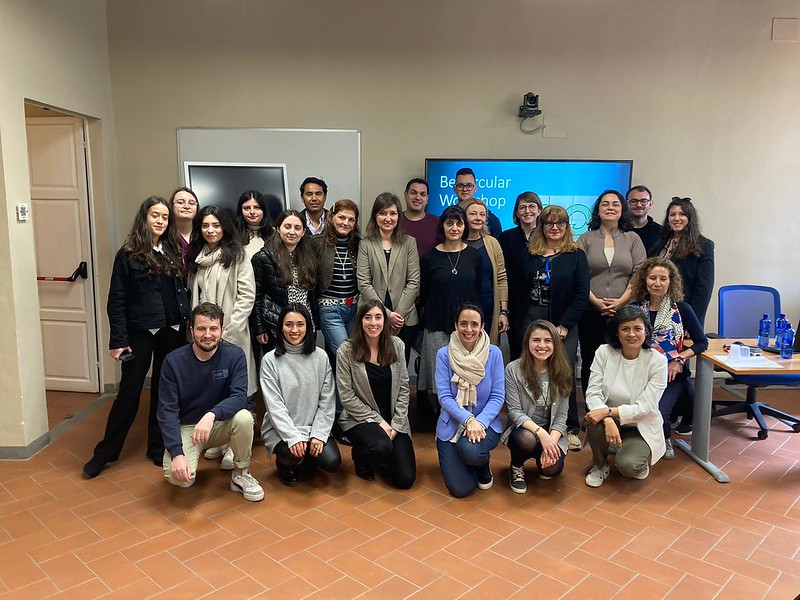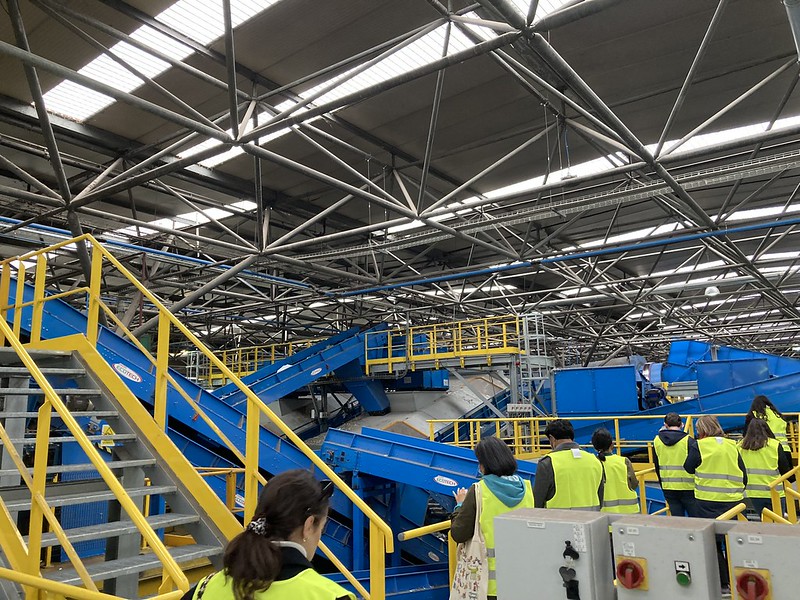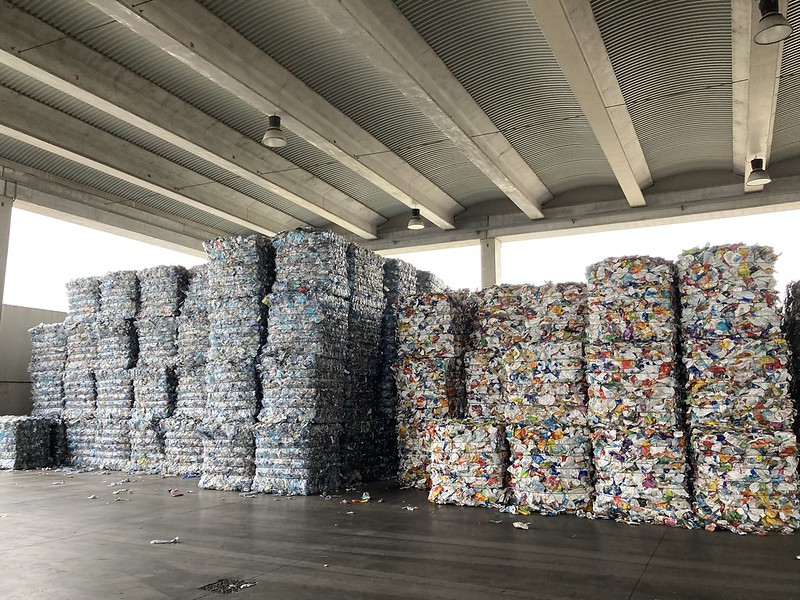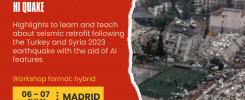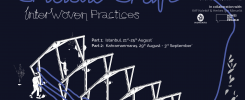Be Circular Webinars
In the academic year 2022/2023, the Circular Eelisa community organized a project to teach and disseminate to bachelor’s and master’s degree students the principle of Circular Economy. The “Be Circular webinars” project combined different learning activities ranging from webinars to laboratory activities and field trips.
Considering the initiative’s success in terms of participation and student results, it can be seen as best practice to disseminate. Indeed, by combining class lectures, laboratory activities, and field trips, students can benefit from a well-rounded and dynamic learning experience. On the one hand, class lectures provided a foundational understanding of the circular economy. On the other hand, laboratory activities such as case studies allowed students to apply theoretical concepts to real-world situations, enhancing their knowledge and problem-solving skills about circular economy. Finally, field trips provided an opportunity for students to learn outside of the classroom, providing a more immersive and experiential learning experience.
Be circular webinars envisaged eight webinars about different topics related to the circular economy. In such a context, presenting different stakeholder perspectives provided students with a more nuanced understanding of the complexities of the circular economy. This helped foster critical thinking skills as students learned to analyse various viewpoints and consider the implications of different decisions. The list of seminars is presented in the table below.
| Title of the seminar | Date | University providing the seminar |
|---|---|---|
| Circular economy as a driver of innovation | 26 October 2022 | SSSA |
| Circular metrics at the organization level | 10 November 2022 | SSSA |
| Circular economy of organic waste | 24 November 2022 | UPM |
| Circular Construction | 15 December 2022 | UPM |
| Circularity in energy, utilities, and resources | 19 January 2023 | UPB |
| Circular cities | 9 February 2023 | UPB |
| Circular design | 23 February 2023 | ITU |
| Circular governance | 9 March 2023 | ITU |
Based on the participation in the webinars, students were selected for participation at the face-to-face workshop in Pisa, which was held on the 30th-31st of March 2023. During the workshop, students participated in a laboratory to foster their understanding of the circular economy. Indeed, laboratories allow students to take an active role in their own learning and explore topics in a more dynamic and immersive way. By working together in groups to solve problems and analyze case studies, students learned to think independently and creatively and communicate their ideas effectively.
During the workshop in Pisa, students also participated in a field trip. Field trips are an essential part of teaching, providing students with hands-on, experiential learning opportunities that are difficult to replicate in the classroom.
In more detail, students visited a landfill to see how waste is managed and how the circular economy principles can be applied. By visiting a landfill, students saw first-hand the consequences of a linear economy that produces waste and consumes resources without regard for sustainability. Moreover, they learn about how circular economy principles can be applied, such as reducing waste generation, designing products for reuse, and promoting recycling and resource recovery. And finally understood that in the current scenario also, landfills are needed, and there are also best practices in landfill management.
Students participating in the activities also visited a recycling plant to have a tangible example of how the circular economy operates in practice and understand the challenges and opportunities associated with the circular economy.
By combining the teaching methods presented above, professors and researchers also learned to improve their communication with students on Circular Economy topics. In particular, the approach was helpful in learning how to adapt teaching style and content to better engage students on circular economy issues. Moreover, professors and researchers discovered to better understand student perspectives by understanding how students with different backgrounds think and solve problems.
Filippo Corsini, Researcher in Sustainability Management at the Institute of Management.
Scuola Superiore Sant’Anna (SSSA)
May 16, 2023
